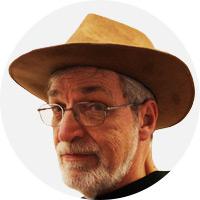The views expressed in our content reflect individual perspectives and do not represent the authoritative views of the Baha'i Faith.
When a sperm enters an egg in the mother’s womb, two things happen. Our physical body is created as well as our soul.
We are very familiar and aware of our bodies once born and as we develop physical powers and abilities. To an extent, the body grows itself without our help, other than giving it the necessities of life. Things like education and experience also develop our mental powers and perceptions.
But what develops our soul? And what is the soul’s purpose? The purpose of the soul is to grow and develop also, by knowing and loving God:
Little reflection, little admonition is necessary for us to realize the purpose of our creation. What a heavenly potentiality God has deposited within us! What a power God has given our spirits! He has endowed us with a power to penetrate the realities of things; but we must be self-abnegating, we must have pure spirits, pure intentions, and strive with heart and soul while in the human world to attain everlasting glory. – Abdu’l-Baha, The Promulgation of Universal Peace, p. 187.
There is no such thing as “everlasting glory” in this physical world. The names of those great personages gone before us only fills a few pages, and one day they will be forgotten too. The exceptions are the prophets and messengers of God, but their reality is above the human reality.
At its core, like the body, our souls and spirits need care and feeding to thrive here, as well as to live eternally. Shoghi Effendi wrote, “…the progress and execution of spiritual activities is dependent and conditioned upon material means.” When a man is starving it is hard to ask him to turn to God. That is why the elimination of the extremes of wealth and poverty is a Baha’i principle.
Just as our parents provide us food when we’re children, and our teachers provide us with knowledge, the messengers of God provide the material and spiritual education needed for our souls to advance in this world and in all the worlds of God.
From an early age we realize we are unique, with our own personality, dreams, hopes, abilities etc. But many of us tend to ignore or not pay heed to the development of our soul and spirit. We may spend an hour a week at a church service, if that, thinking we’ve fulfilled our spiritual duties.
But there’s much more to learn from the holy messengers, from Adam and Abraham, to Buddha and Moses, to Christ, Muhammad and Baha’u’llah, who all brought the holy books and teachings necessary for development of the human soul. They have all propounded the ways and means for our spirit to know more about that eternal Essence of Essences, God, and therefore attain perfection.
In its affirmation of the validity of the great religions of the past, Baha’u’llah’s Most Holy Book reiterates those eternal truths enunciated by all the divine messengers: the unity of God, love of one’s neighbor, and the moral purpose of this earthly life. At the same time it removes those elements of past religious codes that now constitute obstacles to the emerging unification of the world and the reconstruction of human society.
So what is the best way to feed and educate our souls? Through reading and study of the sacred Word, the words of the messengers of God, and in this day, particularly, the words of Baha’u’llah who represents the consummation of all past religions.
Another way is through prayer and devotion. The Baha’i Faith enjoins daily prayer and meditation on all.
Another way is by leading a moral, trustworthy and praiseworthy life. That means following principles of fairness and justice in all one’s doings, fulfilling one’s pledges, being kind and generous to all, listening to all hearts and keeping an open mind.
It means we pay attention to the way we develop our soul and use our spirit—the soul in action—to acquire and perfect the virtues and attributes of God. The Baha’i teachings explain it simply:
… this human spirit has two aspects: one divine and one satanic—that is, it is capable of both the greatest perfection and the greatest deficiency. Should it acquire virtues, it is the noblest of all things; and should it acquire vices, it becomes the most vile. – Some Answered Questions, newly revised edition, p. 163.
If our spirit is the soul in action, then who we are, what most people call our personality, shows our character and what we stand for. That is our legacy.
Our legacy and person can be remembered as being gregarious or reserved, conservative or liberal or in between, kind or harsh and too direct, loving or hateful, mercurial or sane and calm, mean or loving.
Either way, psychologists and psychiatrists tell us, we have control over what we think, say and do.
Now, do we choose to grow our souls as well as our bodies? To develop our spirits and personalities to be lovers of all humankind and promote unity? Or do we only care about ourselves and our close ones and let the rest of the world pass us by?

















Comments
Sign in or create an account
Continue with Facebookor